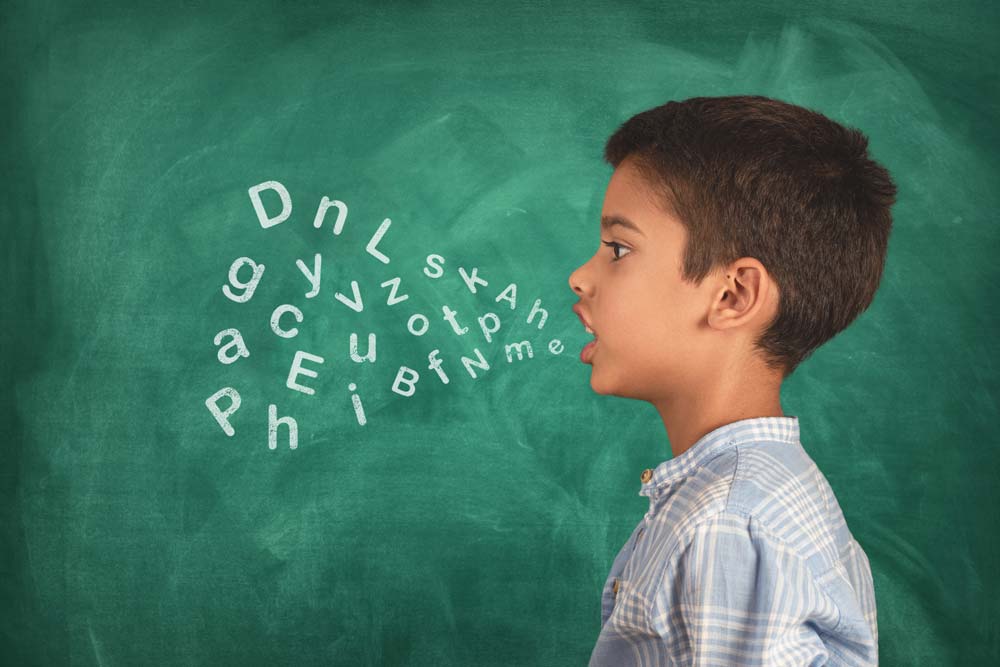Speech Language
Pathology
The speech-language therapy program at A Total Approach follows a DIR methodology and Floortime approach. By following this integrative approach all ATA therapists focus on the child’s sensory as well as emotional regulation as a precursor to moving ahead to more challenging goals.
The speech-language pathologists follow a developmental process of language acquisition and believe that communication goals are best met when the child’s interest is followed. Language can be elicited through naturally occuring experiences e.g. while playing with developmentally appropriate toys, looking at books and arts and crafts. The therapists work closely with the Occupational Therapists either in co-treating sessions or thorough collaboration to ensure that the child receives appropriate sensory stimulation to be well regulated. We believe that parents are essential to our team and we encourage all parents to be part of our sessions so they are able to assist their child in carrying over goals into the home environment.

At A Total Approach we focus on:
- Autism Spectrum Disorder
- Specific Language Disorder
- Formulation of Narratives
- Articulation
- Apraxia
- Stuttering
- Reading (Decoding/Comprehension)
- Written Expression
Evaluation Process:
Our Speech-language Comprehensive Evaluation will provide you with a baseline of your child’s communication abilities and it will inform our treatment planning and the report can be shared with your child’s school to serve as additional information to the IEP. Our Evaluation is usually scheduled over a two hour period and includes detailed back-ground information, standardized language and articulation testing. Language samples provide valuable information regarding the child’s functional use of language, articulation skills, non-verbal skills e.g. pragmatic language skills. A language sample may take the form of a personal narrative where the therapist is assessing the child’s ability to speak about past events in a clear manner. Personal narratives serve the purpose of consolidating memories and integrating a strong sense of self.
- Expressive Language: Children who have difficulty with expressive language skills may be challenged with expressing their ideas in a clear and concise manner. For example, they may use ambiguous words like “stuff, thing” rather than specific descriptive words. They may struggle with narrating a past experience and may not be able to accurately sequence their ideas. Older children may present with academic difficulties. Children could have difficulty with accurate use of pronouns and verb tenses.
- Receptive Language: This refers to your child’s ability to understand what is said/read to them. They may present with difficulty following home/school directions, may need several reminders and for directions to be broken down in order to be successful. They may either tune out or interrupt frequently. Answering higher level inferential questions and understanding of figurative/ non-literal language may be difficult.
- Pragmatics: This area refers to how language is used for social interaction. Children may have difficulty following conversation of peers, being able to read and use non-verbal language accurately and use language with accurate timing, intonation and rate.


Therapy:
- Communication starts well before the use of words and non-verbal communication makes up 80% of communication e.g. joint attention, use of gestures, facial expression.
- Use of ASL is used a prompt for children who have difficulty with accessing verbal language.
- Use of PROMPT (PROMPTS for Restructuring Oral Muscular Phonetic Targets) to target phonemic errors.
- Focus of narrative formulation as a vehicle to relate to past events, consolidate memories and develop a strong sense of self.
- Inclusion of AAC device to enhance communication
- High frequency treatment sessions for children with Apraxia of speech
- Focus on the developmental progression of play skills
- Decoding through development of phonemic awareness and orthographic skills
- Reading Comprehension
- Written Expression
